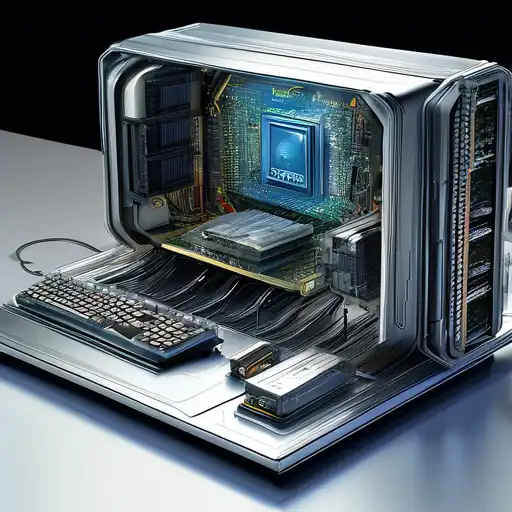The Evolution of Computer Hardware Design
As we delve deeper into the 21st century, the future of computer hardware design is being shaped by groundbreaking innovations and technologies. From quantum computing to biodegradable components, the landscape is evolving at an unprecedented pace. This article explores the key trends and technologies that are set to redefine the way we think about and interact with computer hardware.
Quantum Computing: A Leap into the Future
Quantum computing represents a monumental shift in hardware design, offering processing power that dwarfs traditional computers. By leveraging the principles of quantum mechanics, these computers can solve complex problems in seconds that would take years for conventional systems. This technology is not just a futuristic concept but is already making waves in industries such as cryptography and drug discovery.
Biodegradable and Sustainable Components
Sustainability is becoming a cornerstone of modern hardware design. Manufacturers are increasingly turning to biodegradable materials and energy-efficient processes to reduce environmental impact. This shift not only addresses the growing e-waste problem but also aligns with global sustainability goals, making it a win-win for both the planet and the tech industry.
The Rise of AI-Optimized Hardware
Artificial intelligence (AI) is driving the development of specialized hardware designed to handle AI workloads efficiently. From neural processing units (NPUs) to AI accelerators, these components are tailored to optimize performance and energy consumption, paving the way for more advanced AI applications in everyday technology.
Modular Design for Customization and Longevity
Modular hardware design is gaining traction as a solution to the rapid obsolescence of technology. By allowing users to upgrade individual components rather than replacing entire systems, modular designs extend the lifespan of devices and reduce waste. This approach not only benefits consumers but also supports a more sustainable tech ecosystem.
Conclusion
The future of computer hardware design is bright, with innovations that promise to enhance performance, sustainability, and user experience. As we continue to push the boundaries of what's possible, these advancements will undoubtedly play a pivotal role in shaping the next generation of technology. For more insights into the latest tech trends, explore our technology section.
